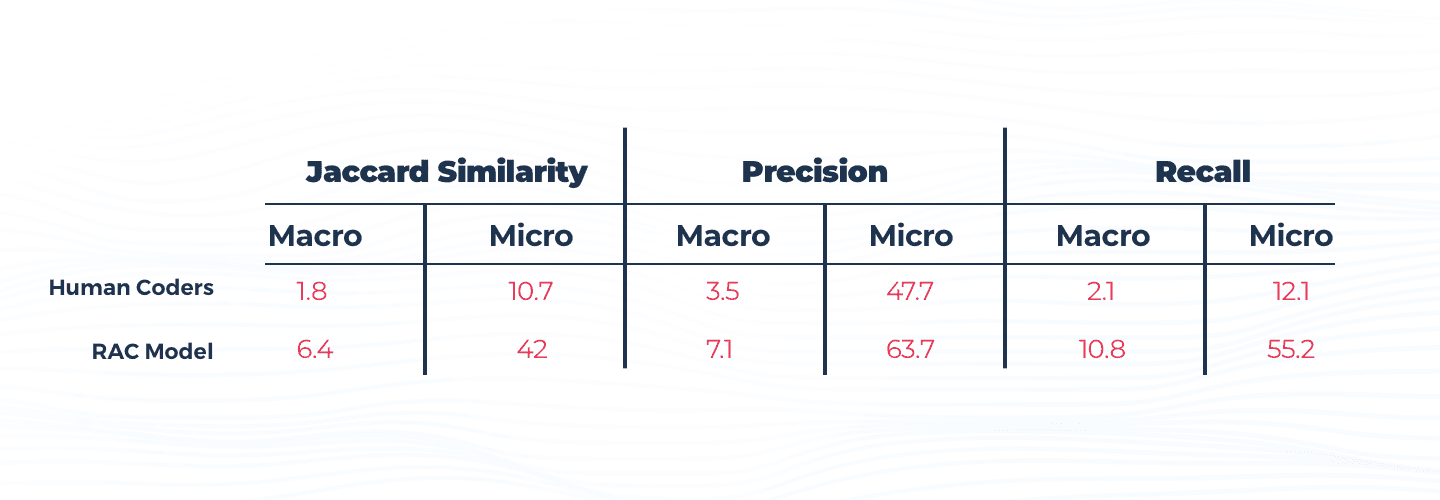
PRESS
New AI Approach Exceeds Performance of Traditional Models For Automatic Coding of Medical Notes
A new AKASA study finds the Read, Attend and Code machine learning model outperformed current state-of-the-art models for automatic coding of inpatient clinical notes by more than 18%.
South San Francisco, Calif. — August 5, 2021 — Researchers at AKASA™, the only Unified Automation™ company for healthcare revenue cycle management, published a new study highlighting how a novel machine learning approach outperformed current state-of-the-art models for automatic coding of inpatient clinical notes by more than 18%. The technology surpassed current models in terms of both efficiency and accuracy as well as the performance of professional human medical coders.
While most healthcare research typically focuses on highlighting innovation in a clinical setting, there is limited peer-reviewed research demonstrating the effectiveness of technology supporting the business function of healthcare. Of note, this is the first research that tracks output from machine learning models for autonomous coding and benchmarks to the performance of human coders.
“We’ve reached a new milestone in autonomous medical coding technology as Read, Attend and Code (RAC) is the new state-of-the-art model in this space,” said Varun Ganapathi, Ph.D., co-founder and CTO of AKASA and co-author of the study. “Our publication challenges others in the industry to be more transparent about how their solutions provide ROI to healthcare’s back office. This technology can help eliminate onerous paperwork that contributes to physician burnout and bloats healthcare spending.”
Researchers compared AKASA’s RAC approach, which is designed by employing attention mechanism and transformers, to the performance of published state-of-the-art machine learning methods based on Convolutional Neural Networks (CNN) and Long Short-Term Memory (LSTM) networks as well as the output of certified professional human coders.
Medical Code Annotation Results By Humans Compared to RAC Model-Based ML System’s Predictions Results

RAC considerably outperformed the prior art based on CNN and LSTM networks by 18.7% in Macro-F1 and also surpassed the human-level coding baseline. When comparing the RAC model’s performance with certified professional human coders, the RAC model and human coders were assigned the same coding tasks of more than 4,000 ICD-9 codes for a total of 508 inpatient discharge summaries randomly sub-sampled from the MIMIC-III testing set. The assignment took human coders about 30 hours over a week to complete.
“From this study, we’ve confirmed that the architecture we’ve designed to process clinical notes and automate annotating codes is now the state-of-the-art model for the industry,” said Byung-Hak Kim, Ph.D., AI Technology Lead at AKASA and co-author of the study. “By leveraging this model, teams can streamline coding tasks to reduce excessive costs and coding errors while deploying resources more strategically to the most complex cases that need extra attention.” The findings will be presented at the Machine Learning for Healthcare Conference on August 6, 2021.
About AKASA
At AKASA, we believe every dollar spent on healthcare matters because healthcare matters to everyone. The only Unified Automation™ company for healthcare, AKASA uses the same machine learning approaches that made driverless cars possible to provide health systems with a single solution for automating revenue cycle operations. AKASA’s unique expert-in-the-loop approach, Unified Automation, combines modern machine-learning with human judgment and subject matter expertise to provide robust and resilient automation. Unified Automation™ adapts to the highly dynamic nature of revenue cycle operations and has been purpose-built for healthcare. AKASA enables health systems to decrease their cost to collect so they can invest more in patient care and be better stewards of the healthcare dollar. AKASA is based in the heart of Silicon Valley. Learn more at www.AKASA.com.


